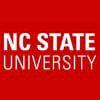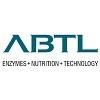Explore all the information on
Feed additives
Welcome to the page about Feed additives of Engormix; a source of knowledge on Feed additives.
Introduction Advancing our knowledge of animal nutrition has been a globally significant research field for approaching a century. The vast knowledge accumulated on how to meet the nutritional requirements of livestock has allowed researchers to evolve towards use of nutrition to achieve the wider aims of global food security. In parallel to the highly focused advances in animal nutrition, other researchers were grappling with the seemingly intractable conflict between globalized...
Comments : 0
Recommendations: 0
Introduction It is estimated that the human world population will exceed nine billion by 2050 (United Nations, 2019), raising a global concern over food security. Increasing consumption of animal protein has been suggested as one of the sustainable strategies to address food security, as it is a rich source of the most common limiting essential amino acids (FAO, 2013; Gorissen and Witard, 2018; Van Vliet et al., 2015), as well as vitamin B12 (Obersby et al., 2013), calcium (Magkos et...
Comments : 0
Recommendations: 0
Recommended events
May 5, 2026
Canada - Alberta - Edmonton
Erik Visser, CEO at Hamlet Protein, shares his outlook on animal protein production for 2026, highlighting poultry and aquaculture as key growth drivers. He discusses regional dynamics, feed economics, sustainability, and the strategic importance of ROI and adaptability for producers. ...
Comments : 0
Recommendations: 0
...
Comments : 0
Recommendations: 0
Aldo Rossi (Amlan International) comments on developing natural products to improve performance, gut integrity, immune function, and resilience to pathogenic challenges, during this Engormix interview at IPPE 2026 in Atlanta. ...
Comments : 0
Recommendations: 0
Roshan Adhikari (CJ Bio America) speaks on the use of branched-chain amino acids (leucine, isoleucine, valine) and tryptophan in layer nutrition, in this Engormix interview at IPPE 2026 in Atlanta. ...
Comments : 0
Recommendations: 2


Webinar: Accurate values drive better profit in poultry nutrition.
Suggested link
Marcio Ceccantini, Global Technical Manager for Vitamins at Adisseo, discusses the evolving role of vitamins in modern animal production and introduces the Microvit® Nutrition Guide 2026, featuring updated recommendations for 18 species and 36 production phases to support performance and nutritional precision worldwide. ...
Comments : 0
Recommendations: 1
Lara Moody (IFEEDER) explains the impact of vitamin supply chain disruptions on meat and egg production, as well as food security, in this Engormix interview at IPPE 2026 in Atlanta. ...
Comments : 0
Recommendations: 0
Megan Provost (AFIA) offers insights on supply and demand for vitamins and amino acids, as well as market trends in recent years, in this Engormix interview at IPPE 2026 in Atlanta. ...
Comments : 0
Recommendations: 0
Yuan-Tai Hung (IFEEDER) comments on the impact of limiting amino acids such as methionine and lysine in poultry and swine diets in the event of a supply chain disruption, during this Engormix interview at IPPE 2026 in Atlanta. ...
Comments : 0
Recommendations: 0
Constance Cullman (AFIA / IFIF) talks about sustainability interventions, their impact, and how they can be tracked, in this Engormix interview at IPPE 2026 in Atlanta. ...
Comments : 0
Recommendations: 1
...
Comments : 0
Recommendations: 0


Webinar: Accurate values drive better profit in poultry nutrition.
Suggested link
Brief project summary Many alternative feed ingredients and by-products from agri-food industries often remain underutilized due to their abundance in dietary fibre or the lack of realization of their nutritional value and bioactive properties. This research aims to investigate the potential of novel prebiotic-type ingredients in promoting the health and development of the gastrointestinal tract in broiler chickens and laying hens, thereby establishing them as valuable bioactive...
Comments : 0
Recommendations: 0
Madalina Diaconu (EW Nutrition) explains their current projects, as well as their solutions aimed at helping producers with important challenges, such as Coccidiosis and Necrotic Enteritis, during this Engormix interview at IPPE 2026 in Atlanta. ...
Comments : 0
Recommendations: 0
Dr. Ajay Awati (EW Nutrition) comments on the advantages of using a xylanase product, among them thermostability, during this Engormix interview at IPPE 2026 in Atlanta. ...
Comments : 0
Recommendations: 1
Vivek Kuttappan (Cargill) shared his research on the beneficial effects of postbiotics and phytogenics on mitigating APEC severity in laying hens, during this Engormix interview at IPPE 2026 in Atlanta. ...
Comments : 0
Recommendations: 0
Manuel Da Costa (Cargill) comments on advances in nutritional solutions using postbiotics and phythogenics, and how microbiome analysis helps identify opportunities or specific issues to address, during this Engormix interview at IPPE 2026 in Atlanta. ...
Comments : 0
Recommendations: 0
Michael Joseph, Assistant Professor & Extension Specialist at NC State University, discusses the potential and caveats of using alternative protein sources in animal production during this Engormix interview. ...
Comments : 1
Recommendations: 0


Webinar: Accurate values drive better profit in poultry nutrition.
Suggested link
Author details: 1 Department of Animal Sciences and Industry, College of Agriculture, Kansas State University, Manhattan, KS, USA 66506-0201; 2 Gordon Denny, LLC, Thornton, CO, USA 80602; 3 Agri Networks Management, Old Saybrook, CT, USA 06475; 4 Bunge North America, Chesterfield, MO, USA 63017; 5 Agricultural Research Service, U.S. Department of Agriculture and Divisions of Plant Sciences and Animal Sciences, University of Missouri, Columbia, MO, USA 65211; 6 Department...
Comments : 1
Recommendations: 0












.jpg&w=3840&q=75)



















